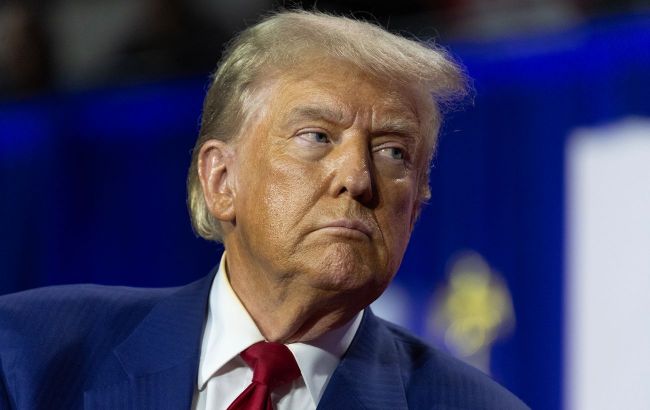Trump’s blueprint for Israel and China: Key strategies revealed by FT
 Former US President Donald Trump (photo: Getty Images)
Former US President Donald Trump (photo: Getty Images)
Republican US presidential candidate Donald Trump may have formulated his stance on key foreign policy issues, particularly with Israel and China. Trump is reportedly inclined to continue trade relations with Beijing, according to Financial Times.
Plans for Israel
According to the FT, sources close to Trump indicate that while Israeli Prime Minister Benjamin Netanyahu appears supportive of Trump’s reelection, the stability of their relationship is uncertain.
FT has learned that Trump might pressure Netanyahu to implement a ceasefire in Gaza if he deems it the right time for peace negotiations.
"President Trump can bifurcate Israel from Netanyahu. He can be critical of leadership decisions while maintaining support for a country’s right to defend themselves," suggests Ric Grenell, a close Trump ally who may assume a key role if Trump returns to office.
Grenell believes one scenario could involve a swift invitation for Netanyahu to visit Washington, should Trump win, to negotiate a ceasefire and facilitate the return of hostages captured by Hamas. Under these conditions, a peace agreement could be signed.
However, as FT notes, Netanyahu's response to such a plan remains uncertain.
Journalists also speculate that Trump might renew his interest in a significant trilateral deal involving Israel, Saudi Arabia, and the US, aiming for long-term regional peace.
In addition, Trump could apply pressure on Iran, threatening fresh sanctions if current agreements are violated.
"The objective should be to bankrupt Iran again and to reinstitute maximum pressure," says Fred Fleitz, a former CIA analyst who served in Trump’s White House.
However, it remains unclear whether Trump would support a war with Iran. An anonymous senior European diplomat in Washington remarked that Trump has a "huge aversion to conflict."
Plans for China
Republican Congressman Mike Waltz shared that Trump, in private discussions, expressed his view that China relies on the US more than vice versa.
“He talks much more about trade deals, tariffs, and currency than about what we do in a conflict in the Taiwan Strait. He believes we apply economic strength in a way backed by a robust military presence that can prevent these wars,” Waltz added.
According to Trump’s allies, the former US president would adopt a “maximum deterrence” strategy to dissuade China from any aggressive actions toward Taiwan.
"Xi Jinping knows if he takes any aggressive action, Donald Trump would deliver real consequences,” said Senator Bill Hagerty, who served as the US Ambassador to Japan during Trump's presidency.
FT pointed out that although Trump's China policy aligns with Biden's on some points, Trump threatens harsher sanctions against Beijing. If such restrictions were enforced, Washington would hope for European support in imposing sanctions.
"We need Europeans to be clear-eyed about China. Many in Europe missed the warning signs from Putin, and now they have a massive war on their hands. We’ve been begging the Europeans to see communist China for what they are doing," says Grenell.
According to recent polling data, Trump leads his opponent, Kamala Harris, by a few percentage points.

